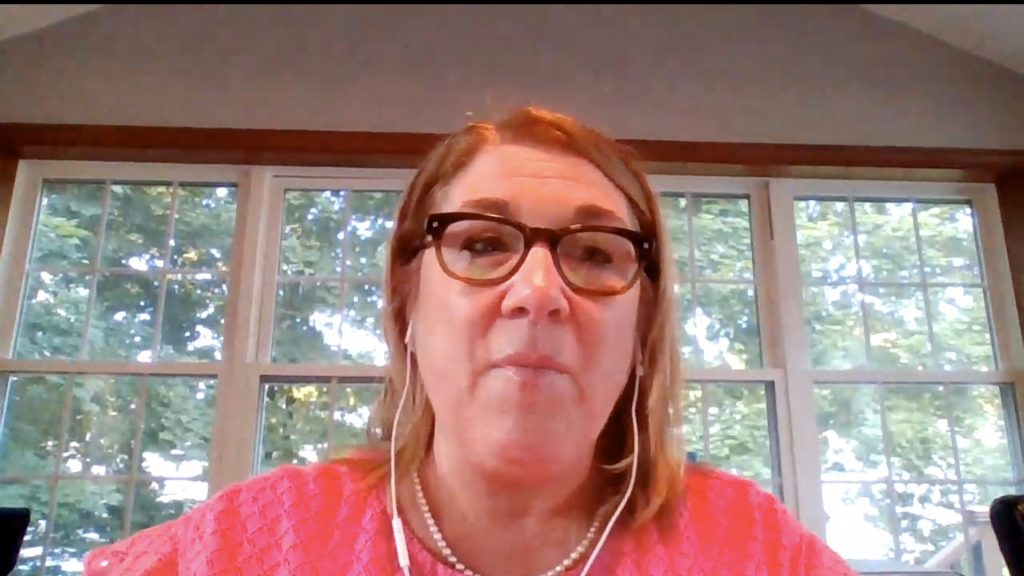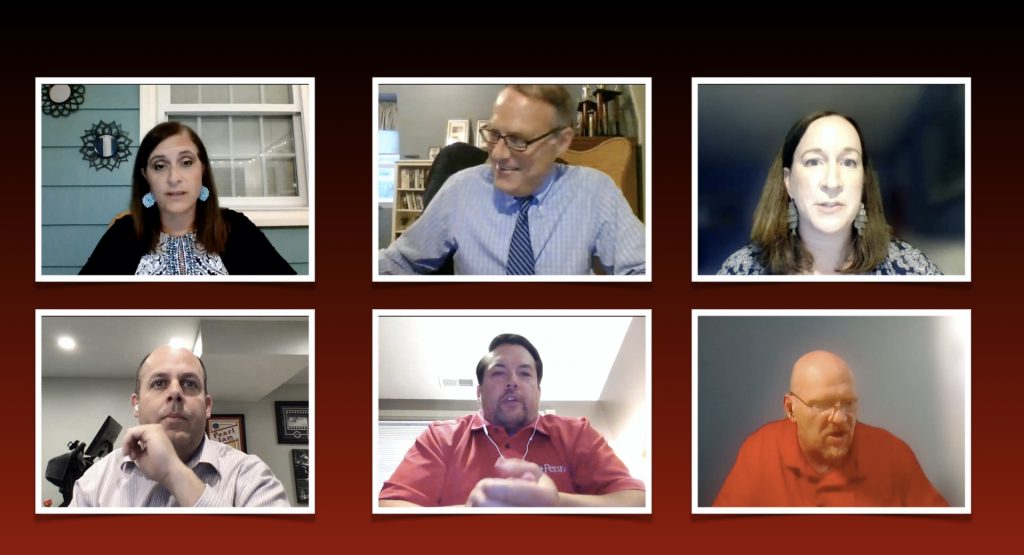Reading, MA — Teaching and Learning was the focus of the School Committee meeting held on June 22. Assistant Superintendent for Teaching and Learning Christine Kelley presented a “Year in Review” that was a “5,000-foot view” of the activities of the department. Kelley, concluding her second year with the Reading Public Schools, focused the review on four areas: professional development and training, committee and curriculum work, curriculum resources and development, and continuity of learning, especially during the shutdown of the schools.

Kelley listed fifteen different professional development activities that were undertaken during the year, highlighting a partnership with the Museum of Science in the area of grades three through five science. Teachers received training in “phenomena-based instruction routines,” with students looking at things occurring in nature, and then guiding those students in noticing and wondering. “The way real scientists do it.” STEM Curriculum Coordinator Heather Leonard declared. Kelley also highlighted elementary drop-in sessions, differentiated Wednesdays, and district-wide cultural competency training that has occurred.
Twelve various committee and curriculum activities were cited, with focus on kindergarten through grade five social studies implementation and everything that went into developing remote learning this spring. In planning for what next fall may look like, Kelley shared that the department is still waiting for state guidelines, though Leonard commented, “We will be able to have a more robust transition.” than the “emergency learning” that occurred this year. Kelley highlighted that work given to standards-based report cards for elementary students. “This is year one of a two-year process,” Kelley added. Kelley also emphasized that curriculum guides are on pace for completion by the end of the year.
Kelley shared areas in which the district had new or enhanced tools this past year, including pre-kindergarten through grade twelve social studies, middle school math, algebra I, and new online assessment and data tools. She also suggested upon questioning that geometry and algebra II curriculums would likely be reviewed in the coming years.
In planning for 2021 and beyond, Kelley referred to surveys returned from over 1,100 parents, 1,100 students, and 200 teachers regarding their experiences with remote learning this spring. From these surveys, Kelley and her team identified some next steps in case some form of remote learning continues into the fall. Continuing effort in student engagement and responsibility for learning will continue as well as emphasizing teacher responsibility to create concise and clear expectations for students. Kelley believes that professional development for all staff as well as more training for students and parents will be crucial to success regardless of what fall learning looks like.
Kelley shared that they need to have a “No one size fits all” approach to remote learning, as no two families have the same access to technology and tools. The district will be looking to develop a common platform and common tools throughout the district and develop a better explanation of the difference between synchronous and asynchronous instruction. A curated list of “core” tools will also be made available for all families to use. Kelley did share that the Department of Elementary and Secondary Education has already determined that traditional grading methods will resume in the fall.
Kelley concluded answering a question from School Committee member Shawn Brandt regarding what has been learned during remote learning that likely will continue once COVID-19 is over. Along with Leonard and Humanities Curriculum Coordinator Allison Straker, Kelley cited the use of technology as the single greatest takeaway. Specifically, the ability for collaborators to gather remotely, the use of online tools for student pacing, and teacher ability to share across the district were mentioned as areas that will likely continue into the future.
The committee welcomed School Nutrition Director Danielle Collins as she shared regarding the “Summer Seamless” meal program that the district will be continuing through August. Collins reported that the program is fully reimbursable and provides a week’s worth of breakfast and lunch to anyone under the age of twenty-one. “It has zero cost to the district,” Collins stated.
The choice to extend the program through the summer will allow the meals program to continue into the fall if needed, where if the program were discontinued for the summer, then it could not restart in the fall. To date in June, 819 meals have been distributed, with 1,141 meals distributed in May. In total 6,938 meals have been given to Reading children through the program. School Committee member John Parks extolled the program, “It is great, and well-received” he declared.

The School Committee voted 6-0 to declare certain older furniture and other items as surplus. It also voted 6-0 to accept both the School Department budget and Fiscal Year 2021 capital plan as approved by Town Meeting.
For the FY 2020 budget year, which comes to a close on June 30, the committee voted 6-0 to move up to $10,000 from the Administrative cost center to the Schools Facilities cost center for the purchase of COVID-19 related personal protective equipment (PPE). Six to zero was also the vote to move $500,000 from the Special Education cost center to the Regular Day cost center, for technology upgrades as well as PPE. Offsets in three revolving funds were also reduced by a vote of 6-0. These changes were needed as a result of the COVID-19 shutdown.
The School Committee adjourned at 9:30 pm
